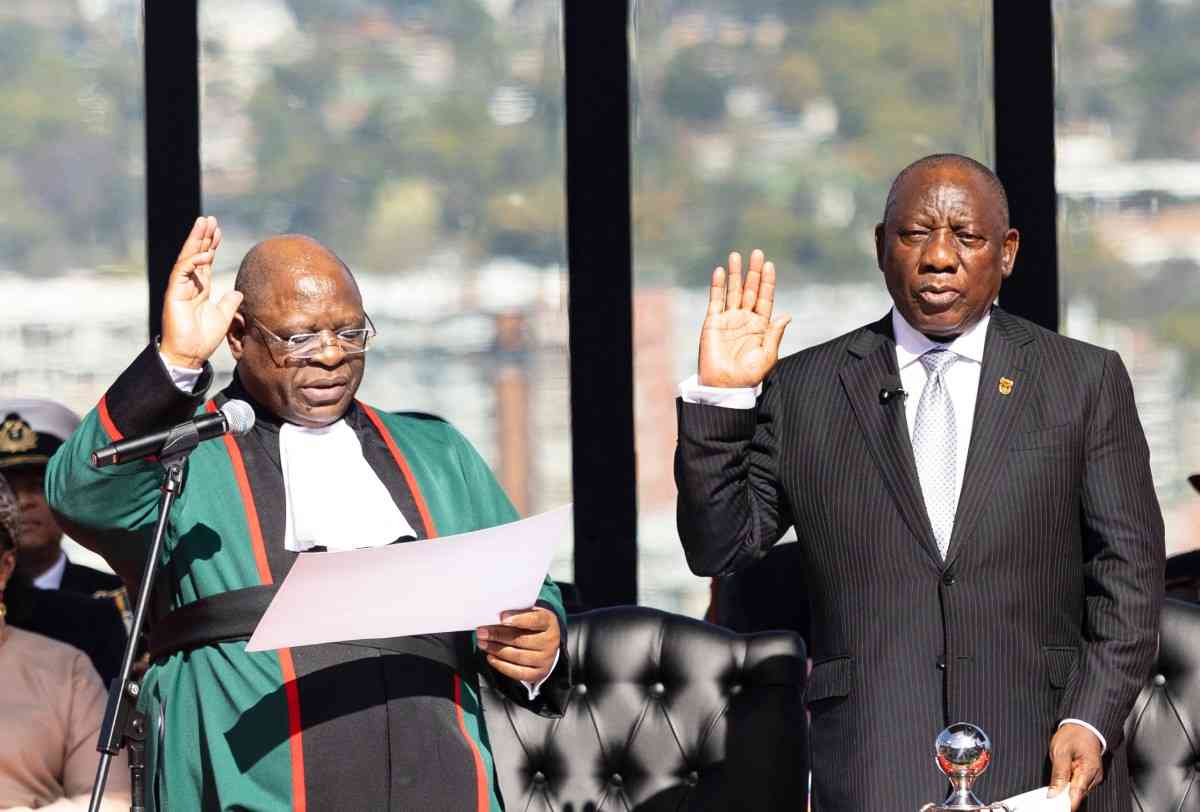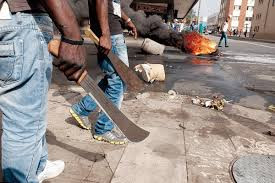
ON Wednesday, President Cyril Ramaphosa was sworn-in for the second term in office, bringing an end to an intriguing seventh general election in South Africa. It was an election that bears so many lessons for Sadc in particular and Africa in general.
Ramaphosa’s ANC national support dipped to 40% for the first time since independence in 1994, necessitating the creation of a coalition government or a Government of National Unity (GNU). This coalition is a result of operational necessity, not out of magnanimity of the winner.
Post the proclamation of the results, oppositions leader Jacob Zuma of uMkhonto weSizwe (MK) disputed the outcome and lodged a constitutional challenge in addition to threats of political action. South African courts swiftly disposed of the matter, thus paving the way for Ramaphosa’s inauguration.
A bitter Zuma boycotted the inauguration ceremony as his MK had boycotted the first sitting of the National Assembly, hoping — wrongly — that the election of Speaker and President would not go ahead because of lack of quorum. Speak of the blind leading the blind.
Two quick lessons come out of Zuma’s futile attempt to sabotage democracy — boycotts do not work and courts are the arbiter in electoral disputes. MK’s boycott of the first sitting of the National Assembly did not stop anything, life went on as usual and the house dispensed of its constitutional obligation.
The second lesson that the courts are the final arbiter in electoral disputes cannot be overemphasised.
Once the Constitutional Court dismissed the MK application for lack of merit, every other activity that had to be done were okayed. Zuma was the loser; he came out as petulant.
This is crucial lesson to Zimbabwe, where in the past two decades — politics of boycotts or escalation of issues after courts pronouncements had become prevalent. It is neither here nor there, boycotts don’t work in politics and escalating of political crisis without the means to bring it to a conclusion is detrimental to the country and its citizens.
- Opposition loses hope on reforms
- Ramaphosa scraps free electricity, water for ministers.
- Ramaphosa's stolen cash to be investigated
- US hits back at SA claims on Zim sanctions
Keep Reading
It is, however, important that the courts should be seen to be independent to the average citizen. Courts should handle applications in an impartial manner.
This is important for all concerned, including the investors who needs assurance that there is rule of law, not rule by law.
The other big lessons that came out the South African elections is the conduct of the political leaders — they did not belittle each other personally at campaign rallies, they differed with dignity on their ideologies or implementation strategies. It was a contest of ideas.
The cordial relationships, even among opponents made the coalition negotiations possible and smoother.
The ANC and the DA found each other easily and started thrashing a coalition arrangement unlike the ANC and MK or EFF after their public spates in the run up and post the election day.
Politics is not a contest of who can hurl the best insults and at some point, politicians from across the divide have to work together for the common good of the citizens.
This has been lacking in Zimbabwe’s politics for the last quarter century, even during the four years of an inclusive government.
It is quite interesting that Zuma, a former president, had the guts to threaten that there would be chaos if MK did not get there way. Zuma was banking on the riots that took place in 2021 when he was incarcerated for contempt of court by the Constitutional Court. Ramaphosa did not miss the subtle browbeating and he responded in his inauguration speech.
“Those who seek to stand in our way, those who seek to inflame tensions, will not succeed, because South Africans are resolute,” Ramaphosa said. “Those who seek to undermine our institutions will fail, because democracy lives in the hearts of our people and will never be dislodged.”
It is clear that that this response was not coming from Ramaphosa the president-elect or ANC leader, but a State President with all the apparatus of State power.
State Presidents have a duty to protect citizens and business. There should never be chaos when the State has at its beck and call the police and the military.
This is not, however, an endorsement of putting soldiers and police to thwart legitimate and peaceful demonstrations or picketing against the government or its failures.
The last lesson is how ruling parties should behave before and after elections and that proportional representation is a better electoral system. The ANC did not go around beating its opponents or dared stop them from campaigning during the electoral season. It did not abuse its incumbency.
This a warning to ruling parties in the region that politics can change and they have to co-exist with the opposition because they are all seeking to develop the lives of all citizens.
Zimbabwe could have fared better with proportional representation post-2000. We could as a country have improved and accustomed to bi-partisanship — working together of the ruling and opposition parties. Zanu PF rarely gets above 52% of the national votes since 2000 yet it has ruled without giving consideration to the needs of the nearly half of the electorate who vote for the opposition.
It is interesting to note that the opposition CCC this week changed its tone, it is now ready to work with government and have robust debates in parliament.
This is a welcome decision, but the opposition should do more and have a clear parliamentary programme of action.
What are the laws that they need changes? What changes are they proposing? What are the issues they are prioritising for discussion by parliamentary portfolio committees? This would help define them.
Zimbabwe and the region can learn a lot from South Africa. A successful coalition government in South Africa would help soothe the anxiety and paranoia by some liberation parties in the region that every opposition is Western sponsored and therefore are puppets of the West.
I’m out.
- Paidamoyo Muzulu is a journalist based in Harare. He writes here in his personal capacity.










